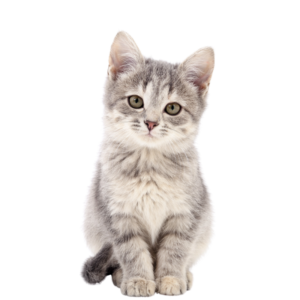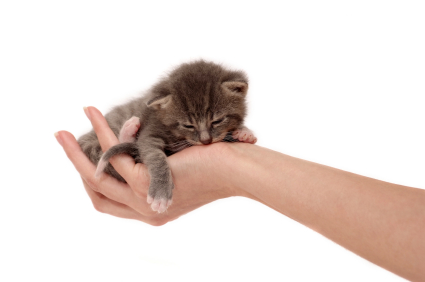There are certain diseases that affect cats for which vaccinations are available for. The most common diseases we vaccinate against are Feline Viral Rhino-tracheitis (Feline Herpes virus) Feline Calici virus, Feline Distemper (Feline Panleukopenia virus) Rabies and Feline Leukaemia virus.
Feline Panleukopenia virus is a prevalent often lethal infection of cats that causes severe vomiting and diarrhoea with depression of the immune system. Vaccination against this disease is highly efficacious.
Feline Herpes and Feline Calici virus infections are extremely common and vaccination plays an important role in controlling these diseases. The severity of infection is variable depending on the strain of the disease causing the infection. It is possible for some cats to become carriers of the diseases.
The timing and administration frequency varies depending on the disease. In order for a kitten to develop adequate immunity to Feline Herpes, Feline Calici and Feline Panleukopenia viruses the best regimen is to give the first vaccination at between 6 to 8 weeks of age followed by a second approximately one month later and a third one month after that at 16 to 20 weeks of age. The reason for this is that the immune system needs repeated stimulation in order to develop an adequate immune response. The timing is vitally important because the immune system is unable to remember an initial stimulus after six weeks so that if a booster vaccination is missed it would be necessary to start the vaccination process again. Booster vaccines (single dose) should be administered after one year and every 3 years after that.
Rabies is a zoonotic disease meaning that it can be passed to human beings. Once symptoms of Rabies develop it always results in the death of the infected individual. Because of this we recommend that all cats should be vaccinated against Rabies in order to protect the human population. Even indoor cats should be vaccinated because cats do escape from homes on occasion and can also be exposed to rabid bats if allowed onto balconies. The vaccine is extremely effective and can be administered with a single dose at 12 to 16 weeks of age. Booster vaccines should be administered annually or longer depending on the type of vaccine used.
Feline Leukaemia virus can cause cancer in cats. It has been one of the major infectious causes of death in domestic cat populations. It can be passed vertically (from mother to kitten) or horizontally (from cat to cat). Because of this, all kittens should be tested for the disease at the time of the second regular vaccination. If a kitten is found to be clear of the virus at that point it can then be vaccinated. A booster vaccination is required in one month and annual boosters are recommended for the first 4 or 5 years.
If you have any questions about vaccinations for your kittens, be sure to contact our Calgary animal hospital.




